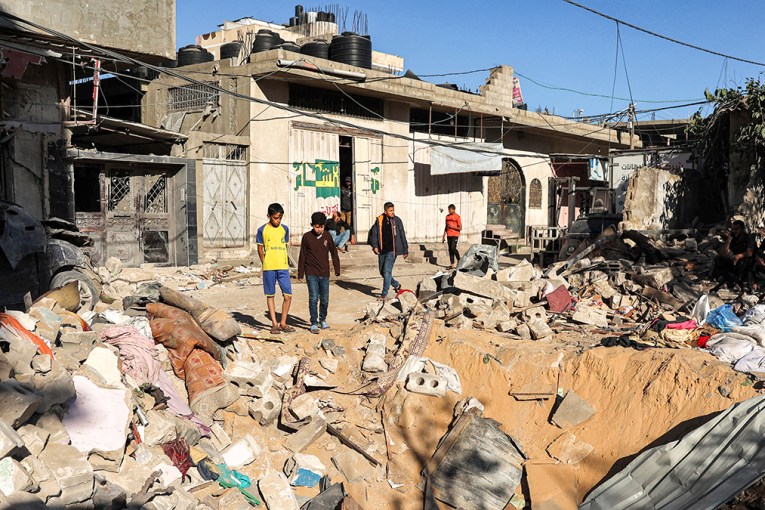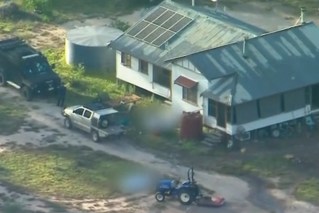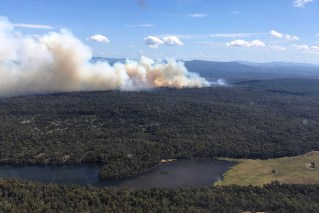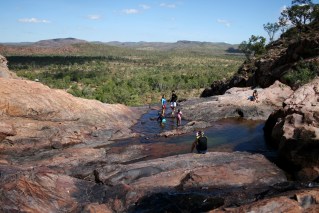Garry Linnell: Enough with the niceties during this bushfire crisis, we should be seeing red

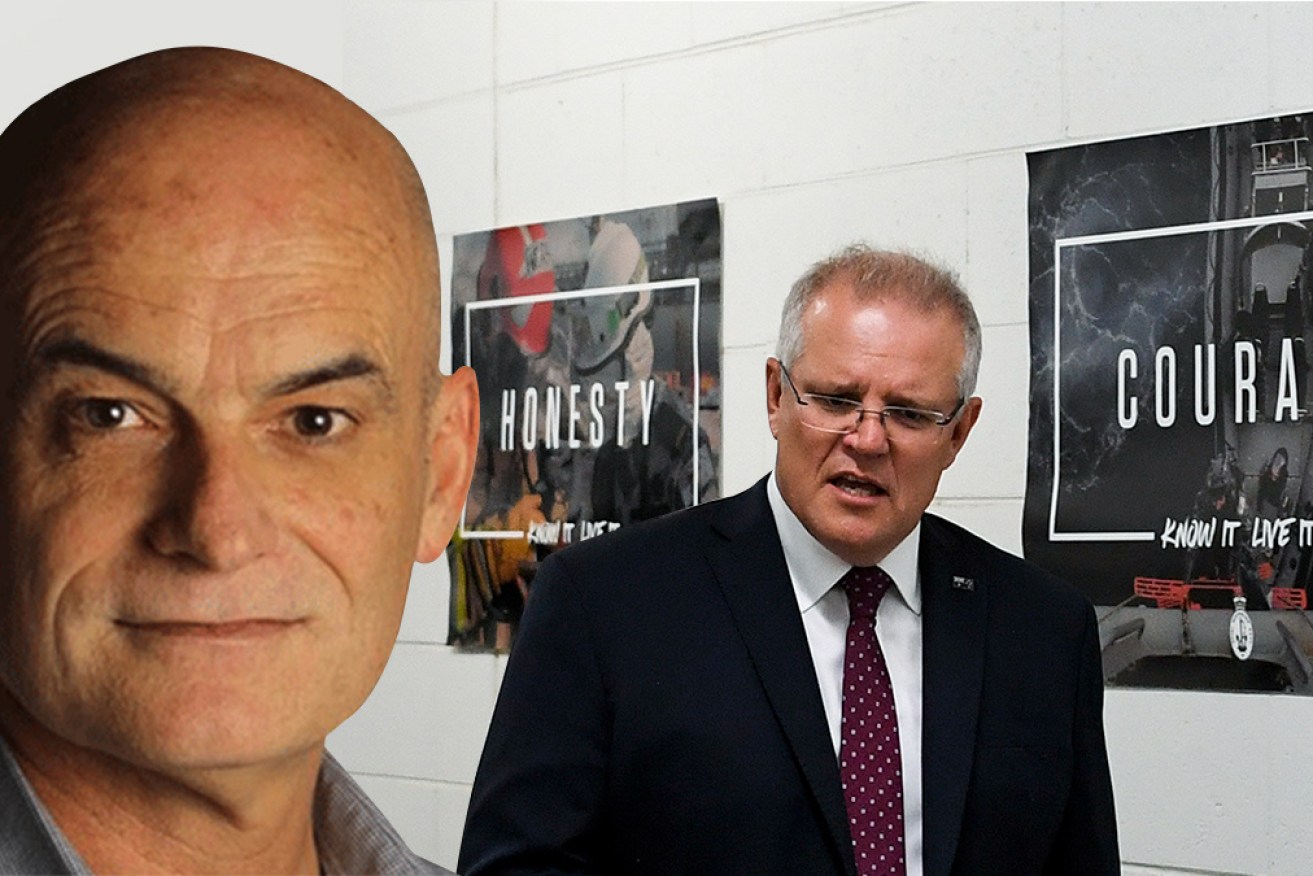
Garry Linnell says it's time to see red over the management of this bushfire crisis. Photo: AAP/ TND
You wince when you discover the NSW government recently slashed the budgets of rural fire services.
You snort in disbelief when that state’s Minister for Emergency Services flees his burning country for an overseas holiday.
You’re ashamed that back in April the federal government was warned of unprecedented fire activity and ignored calls for more funding and resources, including the leasing of more aircraft water tankers.
And you’re astonished at the lack of national leadership shown by Prime Minister Scott Morrison and a government held hostage by an absurd crew of climate change deniers.

Scott Morrison has brushed aside criticism of leaders taking holidays during the national bushfire emergency. Photo: AAP
What many of us really want to do is lash out, to point an accusatory finger at all those misguided souls who have so badly read the bushfire disaster that has choked much of eastern Australia over the past two months.
But most of us don’t.
There’s an unwritten rule many Australians apply in times of a national disaster. It’s similar to the one that governs funerals – if you don’t have anything nice to say, then best say nothing.
Better to tread softly when emotions are running high, goes the thinking.
Look at the reaction when a handful of angry Cobargo residents loudly heckled Scott Morrison last week and told him to get out of town.
The apologies started almost immediately. It wasn’t the Australian way of doing things. There were people calling radio talkback to say it was far too early for reprisals to begin.
No, in the midst of a crisis like this we prefer to believe those misguided souls are already stained by their actions and their words.
- Related: ‘PM turned his back on me’
We’re happy to let them squirm with embarrassment for a little longer because we believe their day of reckoning will surely come.
So instead, we show respect for the victims and sympathise with their loss.
We admire the way small communities rally in times of crisis.
We gaze in awe at the sheer courage and tenacity of all those volunteer firefighters.
And once more we dig deep into our pockets and contribute as much as we can to help those whose lives have been destroyed by the fires.
But to hell with all the niceties.
That mob in Cobargo, helpless and frustrated by a force beyond their reckoning and control, had every right to lash out.
Deep down they know what will happen: There is every chance there will be no day of reckoning.
When this is all over, when rain finally begins to fall and the bush finally stops burning and the skies begin to clear, many of the awful mistakes of the past few months will become, if not forgotten, a distant memory for most of us.

What’s left of Mallacoota beneath an unearthly red sky. Photo: ABC
Normality – or whatever that is these days – will resume. Other big issues will consume our attention and the firestorm of 2019/20 will be shrugged off as a once-in-a-lifetime event.
So now is the time for the reckoning to begin, for judgement to be passed and recommendations made to ensure history does not repeat itself.
Our federal politicians have been addicted to Royal Commissions in recent years. In the past decade seven have been announced.
Throw in another 15 or so from their state counterparts over the same period and you have an extraordinary array of inquiries, not to mention a financial windfall for the legal fraternity.
So who could complain about another national inquiry?
Here are a few questions to get us started.
Why did it take until just a few days ago for the Army Reserve to be summoned to assist in what has clearly been a looming national disaster for weeks?
Why, compared to countries like France and Canada, do we have such a pitifully small number of water-bombing aircraft?
Why, in a nation that burns every summer, were recommendations to increase those craft consistently ignored or rejected?
How do we better identify areas at risk, particularly when adverse weather events are going to increase in coming decades?
What are we to do with people who refuse to leave their homes when a giant wall of flame roars into view? Should we have uniform compulsory evacuation laws to save people who put their property before their lives?
Do we need better screening processes for those volunteers in our firefighting organisations? How did someone like Blake William Banner, a 19-year-old who will face court later this month in connection with seven fires on the NSW south coast, become a volunteer?
Are existing penalties for arson appropriate?
Why should firefighting services around the nation depend so heavily on volunteers and charitable donations? How is this not one of the most immediate and pressing national issues deserving hundreds of millions of dollars in extra public funding?
And why hasn’t NSW Premier Gladys Berejiklian fired emergency services minister David Elliott for abandoning his post for a European holiday, a vacation that even he concedes was “inexcusable”?

PM Scott Morrison was caught hamming it up with holidaymakers in Hawaii.
You could go on for days asking questions like these. And it might take us years to find the right answers – if some of them can actually be found.
But now is the time to start asking – not later.
More than a decade ago millions of us gathered around our television sets as Eddie McGuire hosted ‘The National IQ Test’, a three-hour extravaganza where registered viewers and a panel of celebrities answered a series of questions designed to test their intelligence.
But that was just showbiz. For the past two months we have been served up a genuine intelligence test by the infernos raging up and down the east coast.
The results, so far, are disheartening. Let’s hope there is room – and time – for a big improvement.
Garry Linnell was director of News and Current Affairs for the Nine network in the mid-2000s. He has also been editorial director for Fairfax and is a former editor of The Daily Telegraph and The Bulletin magazine
